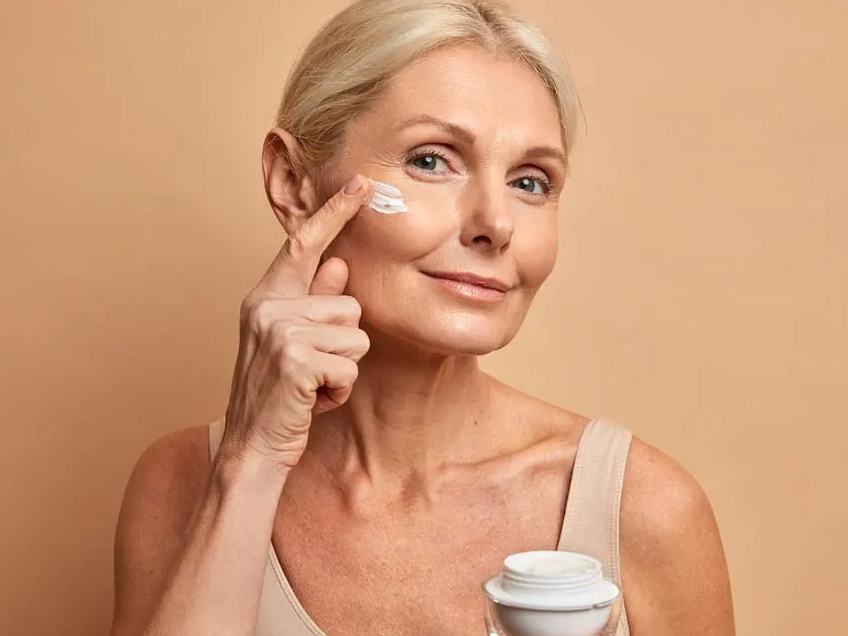The Ultimate Guide to Anti-Aging Skincare
Aging is inevitable, but how you care for your skin can significantly impact how gracefully you age.

Aging is inevitable, but how you care for your skin can significantly impact how gracefully you age. The right anti-aging skincare routine can minimize fine lines, preserve skin elasticity, and maintain a youthful glow for years to come. In this comprehensive guide, we’ll explore the most effective ingredients, habits, and techniques to build an anti-aging skincare regimen that truly works. Whether you’re in your 20s looking to prevent signs of aging or in your 50s aiming to reverse them, this guide will help you make informed, effective choices.
Understanding Skin Aging
Before building your anti-aging skincare routine, it’s important to understand what causes aging. Skin ages due to both intrinsic factors (natural aging process, genetics) and extrinsic factors (sun exposure, pollution, smoking, diet). These contribute to:
- Loss of collagen and elastin
- Reduced cell turnover
- Thinning of the skin
- Appearance of fine lines, wrinkles, and age spots
- Uneven texture and pigmentation
By addressing these causes directly, you can slow down or even reduce visible signs of aging.
The Foundations of Anti-Aging Skincare
A proper anti-aging skincare routine is built on consistent, daily habits supported by targeted ingredients. The following pillars are essential for youthful, healthy skin:
1. Sun Protection (SPF)
Sun damage is the leading cause of premature aging, also known as photoaging. Broad-spectrum sunscreen protects your skin from both UVA (aging) and UVB (burning) rays.
Why it's essential:
- Prevents wrinkles, sagging, and dark spots
- Reduces risk of skin cancer
- Helps maintain skin tone and texture
How to use:
- Apply SPF 30 or higher every morning, even on cloudy days
- Reapply every 2 hours when outdoors
2. Gentle Cleansing
A gentle cleanser removes dirt, oil, and pollutants without stripping the skin’s natural barrier.
Tips:
- Choose a sulfate-free, pH-balanced cleanser
- Avoid over-washing or using hot water
Key Anti-Aging Skincare Ingredients
Certain ingredients have been extensively researched and proven to reduce signs of aging. Look for these anti-aging skincare ingredients in your products:
1. Retinol (Vitamin A)
One of the most studied anti-aging ingredients, retinol boosts collagen production, increases cell turnover, and reduces fine lines and wrinkles.
Benefits:
- Smoother skin texture
- Fewer fine lines
- Faded dark spots
How to use:
- Start with a low concentration and use at night
- Apply moisturizer afterward to reduce irritation
2. Vitamin C (Ascorbic Acid)
A powerful antioxidant, vitamin C protects against environmental damage and boosts collagen synthesis.
Benefits:
- Brightens dull skin
- Fades hyperpigmentation
- Reduces fine lines
How to use:
- Apply a vitamin C serum in the morning before sunscreen
3. Hyaluronic Acid
This naturally occurring molecule attracts and retains water in the skin, giving it a plump, hydrated appearance.
Benefits:
- Intense hydration
- Reduces appearance of fine lines
- Improves skin elasticity
How to use:
- Apply on damp skin and follow with moisturizer
4. Peptides
Peptides are small chains of amino acids that signal your skin to produce more collagen and elastin.
Benefits:
- Improves firmness and smoothness
- Reduces wrinkles
- Enhances skin texture
5. Niacinamide (Vitamin B3)
A multi-tasking ingredient that supports barrier repair, evens skin tone, and reduces inflammation.
Benefits:
- Minimizes pores
- Fades age spots
- Improves elasticity
Building an Anti-Aging Skincare Routine
A solid anti-aging skincare routine should be tailored to your age, skin type, and concerns. Here’s a simple step-by-step routine:
Morning Routine:
- Cleanser: Gentle, hydrating formula
- Antioxidant Serum: Vitamin C or niacinamide
- Moisturizer: Lightweight, nourishing
- Sunscreen: Broad-spectrum SPF 30+
Evening Routine:
- Cleanser: Remove makeup and impurities
- Retinol or Peptides: Apply retinoids or peptide serums
- Moisturizer: Richer formula to repair overnight
- Eye Cream (optional): With caffeine, peptides, or hyaluronic acid
Lifestyle Habits That Support Anti-Aging
Skincare alone isn’t enough to prevent aging—your daily habits also play a major role in how your skin looks and feels over time. Combine your anti-aging skincare with these healthy practices:
- Stay hydrated: Drink at least 8 glasses of water a day
- Eat an antioxidant-rich diet: Include fruits, vegetables, omega-3s, and lean protein
- Sleep well: Aim for 7–9 hours of quality sleep to allow skin repair
- Exercise regularly: Boosts circulation and delivers oxygen to skin cells
- Avoid smoking and limit alcohol: Both accelerate collagen breakdown and skin dehydration
- Manage stress: High cortisol levels can trigger inflammation and aging
Anti-Aging Myths to Ignore
There are many misconceptions around anti-aging skincare that can lead you astray. Here are some myths to avoid:
1. You don’t need anti-aging products until you see wrinkles
Prevention is key—start using protective and nourishing products in your 20s or early 30s.
2. Expensive products work better
The effectiveness of a product depends on ingredients, not price. Affordable products can be just as powerful.
3. Natural products are always safer
Some natural ingredients can irritate sensitive skin. Always patch test, regardless of how “natural” a product is.
4. More products mean better results
A simple, consistent routine with proven ingredients often works better than overloading your skin with too many products.
When to See a Dermatologist
If over-the-counter anti-aging skincare isn’t giving you the results you want, consider seeing a dermatologist. They can provide professional-grade treatments such as:
- Chemical peels
- Microneedling
- Laser therapy
- Prescription retinoids
- Injectables (Botox, fillers)
These treatments can offer deeper, faster improvements under medical supervision.
Final Thoughts
Creating an effective anti-aging skincare routine doesn’t need to be complicated. By understanding your skin’s needs, using the right ingredients, and adopting a healthy lifestyle, you can reduce visible signs of aging and maintain a glowing, youthful complexion. Whether you’re just beginning your skincare journey or upgrading your routine, consistency and informed choices are key to long-term results. Remember, aging is natural—but glowing skin at any age is possible with the right care.